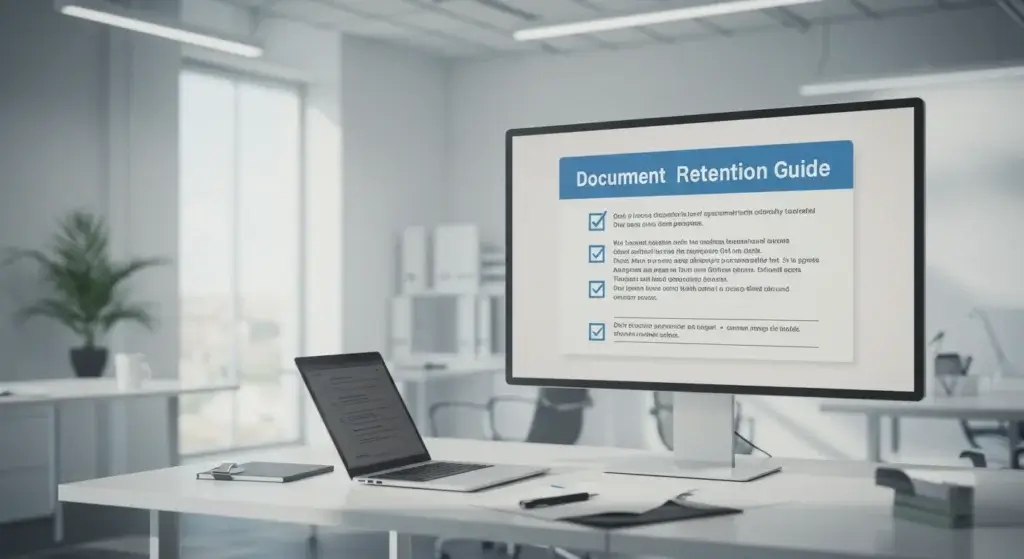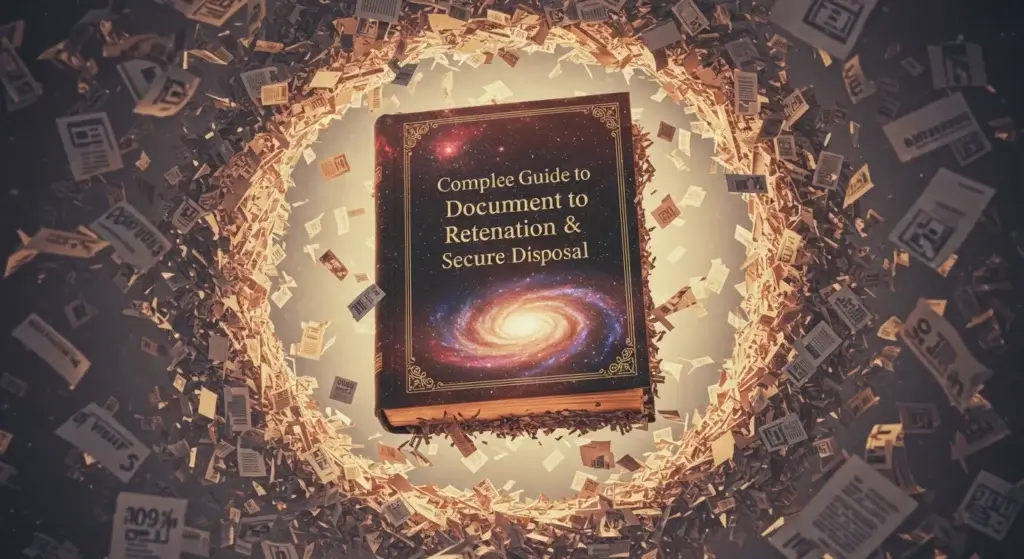Keep or Shred? Your Complete Document Retention Guide & Secure Disposal
Not sure what documents to keep or destroy? Our expert document retention guide helps Australians protect their sensitive information with secure disposal tips. Stay safe and organised!

Why Proper Document Management Matters
Keeping track of important documents isn’t just about decluttering—it’s about protecting your identity and staying compliant with Australian regulations. A well-structured document retention guide ensures that you keep essential records while safely disposing of unnecessary documents. Documents left lying around or disposed of incorrectly can lead to identity theft, fraud, or legal troubles. So, whether you’re cleaning out your home office or managing business records, knowing what to keep and what to shred is crucial

General Guidelines for Document Retention
In Australia, the Australian Taxation Office (ATO) mandates that many financial records be kept for at least five years. However, some documents require longer retention or indefinite safekeeping.
Follow a clear document retention guide to determine how long to hold onto different types of documents before shredding them.
Documents You Should Keep Indefinitely
Some documents are too important to discard, as they prove identity, ownership, and legal status:
- Birth and Death Certificates
- Marriage and Divorce Papers
- Citizenship and Immigration Documents
- Adoption Papers
- Wills and Estate Planning Documents
- Property Titles and Mortgage Agreements
- Vehicle Titles and Registration Papers
💡 Pro Tip: Store these in a fireproof safe or a secure digital storage system to avoid loss or damage.
Documents to Keep for a Limited Time
Keep for at Least 5 Years
- Tax Returns and Supporting Documents (as per ATO requirements)
- Business and Employment Records
- Superannuation Statements
- Investment Records (until assets are sold + 5 years for tax purposes)
Keep for 1-3 Years
- Bank and Credit Card Statements
- Medical Records (unless needed long-term)
- Insurance Policies (until renewal)
- Utility Bills (if not required for tax purposes, discard after payment confirmation)
📌 Tip: A solid document retention guide recommends keeping digital copies of these files for added security.
Documents to Shred Immediately
Some documents contain sensitive personal data but do not need long-term retention. These should be shredded immediately after use:
- Junk Mail with Personal Information
- Expired Credit and Debit Cards
- Old ID Cards and Passports (expired and unused copies)
- Expired Insurance Documents
- Utility Bills Older Than a Year
- Medical Prescriptions No Longer Needed
Why shred? 🛡️ To prevent identity theft and data breaches! Follow the best practices in our document retention guide.
Special Considerations for Businesses
Business owners must comply with Australian data protection laws, including the Privacy Act 1988. A well-implemented document retention guide ensures compliance and secure disposal of sensitive data.
- 📂 Employee Records – Keep for 7 years after termination.
📊 Financial Statements & Invoices – Retain for at least 5 years.
🔐 Client Information – Securely dispose of any outdated or unnecessary personal data.
📝 Contracts & Agreements – Retain for at least 7 years after expiration. - 💡 Best Practice: Implement a document retention and destruction policy to maintain compliance and efficiency.
FAQs on Document Disposal
How often should I shred documents?
Can I shred documents with staples and paper clips?
What if I don’t have a shredder?
Stay Secure, Stay Organised
Proper document management is essential for security and compliance. By following these retention and disposal guidelines, you can protect your personal information, prevent identity theft, and declutter your space.
If you’re drowning in old paperwork, it might be time to book a professional shredding service to handle the job efficiently and securely. Whether you’re a small business, a busy household, or just keen to declutter, shredding your old documents is a simple yet powerful way to stay organised and safeguard your sensitive information.
💡 Need a Reliable Shredding Service? If you have stacks of old documents piling up, book a professional shredding service today to safely and securely dispose of them.
🔗 Related Pages & Resources:
- ATO Record Keeping Guide
- Office of the Australian Information Commissioner – Privacy & Data Handling
- National Association for Information Destruction (NAID) Australia
📞 Contact us today for secure, hassle-free shredding!